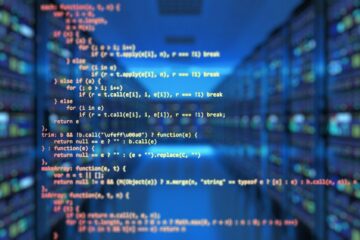![]()
Introduction:
Internet Governance can be defined as processes that influence the management of the Internet locally, regionally, nationally, and globally[1]. It also can be defined as “the rules, policies, standards, and practices which coordinate and shape global cyberspace”[2] The efforts made towards achieving a comprehensive regime with respect to internet governance have been persistent since the 1990s but the results are moderate at best.
The various activities in this field, especially in the mid-1990s include the Internet Corporation for Assigned Names and Numbers (ICANN), World Intellectual Property Organization (WIPO), etc. A much more pressing issue was the lack of recognition that these organizations had as was proved in the World Summit on the Information Society (WSIS). It is also pertinent to note that the WSIS itself was unable to meet its broader objectives and perhaps the only significant activity it undertook in the first four years of its formation was the creation of the Internet Governance Forum (IGF), which helped facilitate the discussion on Internet Governance.[3]
In the scope of this article, a brief history of Internet Governance and the various developments and international agreements with respect to the same are first discussed, before proceeding to analyze the present situation and the need for widening the scope of and also ensuring better regulation of Internet Governance.
History of Internet Governance
In the United States of America, an idea of a medium through which a message could be disseminated to many people in a network and not just one was perceived somewhere in the 1950s and 1960s, as a result of threats on the destruction of their centralized communication systems by the Soviets.[4] An attempt to create such a decentralized system led to the creation of Arpanet (Project of Advanced Research Projects Agencies (ARPA), US Department of Defence)[5]. Subsequently, the main focus was on ensuring free access to the internet, allocation of internet domain names, minimizing governmental influence, and finally, the multi-stakeholder governance model, which still is one of the primary traits which can be found with respect to Internet Governance in the American scenario.
Free internet access and lack of governmental influence further posed problems with respect to Human Rights, Freedom of Speech, Censorship, Data privacy, etc.[6] The importance of the aspect of Freedom of Speech and Expression was reiterated by the Supreme Court of India in the recent case of Bhasin v. Union of India[7], in which the Court had asked the Government and other concerned authorities to review the internet shutdowns in the state of Jammu and Kashmir, owing to protests against the Citizenship (Amendment) Act, 2019.
Working of Internet Governance
Internet Governance has three broad areas. It encompasses governance of the tools governing Internet functioning, layers of the Internet, and parties executing governance norms. Tools of the Internet include the various legislations and policies on Internet regulation. The layers of the Internet comprise of the Infrastructure layer (hardware required to transmit data), logical layer (governs the Domain Name System or DNS), applications layer (various software or ‘apps’ where content is shared), and the content layer (the content shared on websites and other platforms).
The focus of Internet Governance shifted from infrastructure and logical layer to the applications and content layers, due to a proliferation of new forms of content and the platforms on which such content can be shared. Internet Governance also takes place across regional, national, and global levels, by many parties. The WSIS led to a consensus document named ‘Tunis Agenda for Information Society’, which stated that efforts towards better management and governance of the Internet have to be transparent, multilateral, and also democratic, with the involvement of stakeholders including governments, private enterprises, and international organizations. It also focuses on the aspect of equitable resource distribution in the view of multilingualism.[8]
Norms of Global Internet Governance
The various proposed norms of Internet Governance can be summarized and enlisted as follows[9]:
- Preservation of Internet Model: The Internet Model has helped over the years to facilitate communication between individuals as well as organizations and it is necessary that if a new Internet Governance regime is formulated, it should not contradict the basic tenets of the Internet Model.
- Regulation of Private Sector: The private sector is one of the major players in Internet Governance. However, both under-regulation as well as over-regulation of the private enterprises pose negative effects. When control over the core aspects of the Internet is given to private enterprises, there is a threat to their proprietary status. Overregulation of the private sector may lead to the Internet losing its value as an association that facilitates communication of one’s free will.
- Restraining policy Functions: Policymaking with respect to Internet Governance is to only regulate particular endpoints where a criminal or fraudulent activity has taken place and not regulate or control the entire network itself. This is necessary to uphold the decentralization aspect, which was one of the foundations for the Internet.
- Control of centralized aspects of the Internet: Another norm is that abuses of the control held by governments over centralized aspects of the Internet have to be mitigated, failure of which is a cause of concern.
- Legitimization of Multi-Stakeholder Governance: The “public interest” aspect of the Internet would be preserved when its regulation is not done just by a government or through an agreement between multiple governments. The “Internet Community” consists not just of States but also of private corporations, Therefore, traditional Intergovernmental regulation of the Internet is obsolete and the need is now present to recognize other members of the Internet Community.
Conclusion
The Internet has become an indispensable aspect of almost everybody’s lives, across almost every imaginable sphere in the modern world. As was mentioned earlier, governmental intervention in Internet Governance was majorly protested against on a global scale. But over the years, due to the increasing forms of content and the platforms on which such content could be shared, government intervention has become more necessary, especially in political and censorship aspects. The common norms of Global Internet Governance which have been enlisted under the immediately previous sub-heading were posited keeping in mind the various players in Internet Governance, including private corporations, Governments, end-to-end users, Research Institutions, etc. While the norms stated previously are just proposals, it is to be noted that they are not prominently recognized.
There is now a need for organizations such as ICANN or the International Telecommunication Union (ITU) to recognize the many issues in Internet Governance and accordingly frame the norms upon which future actions can be taken. There is also a need to increase the role of the Internet Governance Forum from a body merely facilitating discussions to an organization that assists governments or other related agencies to take necessary measures, including the formulation of legislation.
In this context, it is pertinent to note a recommendation made by Milton L. Mueller, who is the co-Founder and co-Director of the Internet Governance Forum. He compares the process of designing a framework on Internet Governance to that of frameworks on Climate Change. Instead of rushing ahead with creating a framework, a ‘framework convention[10]’ could be created as was done with the Climate Change issue.
As per Mueller, “A United Nations Framework Convention on Internet Governance seems to be a reasonable option for states to consider. First, it should define clearly the governance problem and its boundaries. Like the UNFCCC, it should have agreed definitions for key facts or principles about the Internet and should clearly establish the norms that should be applied to Internet governance. This could include the principles and norms formulated above or, at a minimum, such element as maintaining the openness and freedom of the Internet as a communication channel. A framework convention should indicate those areas in which further agreements need to be reached, particularly in terms of inter-regime conflicts (like intellectual property and freedom of expression). The norms should clearly indicate the role of civil society and private sector organizations, which have been critical to the development and maintenance of the Internet, in the formal governance process”[11].
Therefore, the time is now ripe for properly regulating Global Internet Governance frameworks beyond domain name allocations and other related procedures. Various issues on different aspects including Freedom of Speech, right to privacy, the role of the private sector in Internet regulation, regulation of the type of content, etc. have to also be tackled through global coordination, which does not necessarily mean only various governments but also other stakeholders and organizations, including those companies which facilitate internet browsing and also companies facilitating online communication. It is pertinent to note that the right to privacy also includes the right to be forgotten, i.e, a person who has shared data on the Internet using a platform must be able to remove the same data. Aspects such as the right to data privacy and also the right to access (non-confidential) government data (through legislations such as the Right to Information Act in India) are also aspects that are to be studied before proceeding to formulate a regime on Global Internet Governance.
References:
[1] Internet Governance, Internet Society (2019) https://www.internetsociety.org/issues/internet-governance/.
[2] What is Internet Governance, Internetgovernance.org https://www.internetgovernance.org/what-is-internet-governance/.
[3] Milton Muller et al., The Internet and Global Governance: Principles and Norms for a New Regime, 13(2) Global Governance 237-238 (2007).
[4] Wade Hoxtell & David Nonhoff, Internet Governance: Past, Present and Future, Gppi.net (22 Nov., 2020) https://www.gppi.net/2019/11/22/internet-governance-past-present-and-future.
[5] Id at 5.
[6] T. Benner & M. Hohmann, Getting Free and Open Right: How Eurpoean Internet Policy Can Compete in A Fragmented World, Gppi.net (2018) https://www.gppi.net/media/Hohmann_Benner_2018_European_Internet_Foreign_Policy.pdf.
[7] WP (C) No. 1031 (2019).
[8] Nonhoff, supra note 4 at 6-7.
[9] Mueller et al., supra note 3 at 248-251.
[10] A framework convention establishes certain norms and principles based on which international action would be taken and the more detailed procedures will be looked into by involved parties.
[11] Mueller et al., supra note 3 at 251-252.



0 Comments